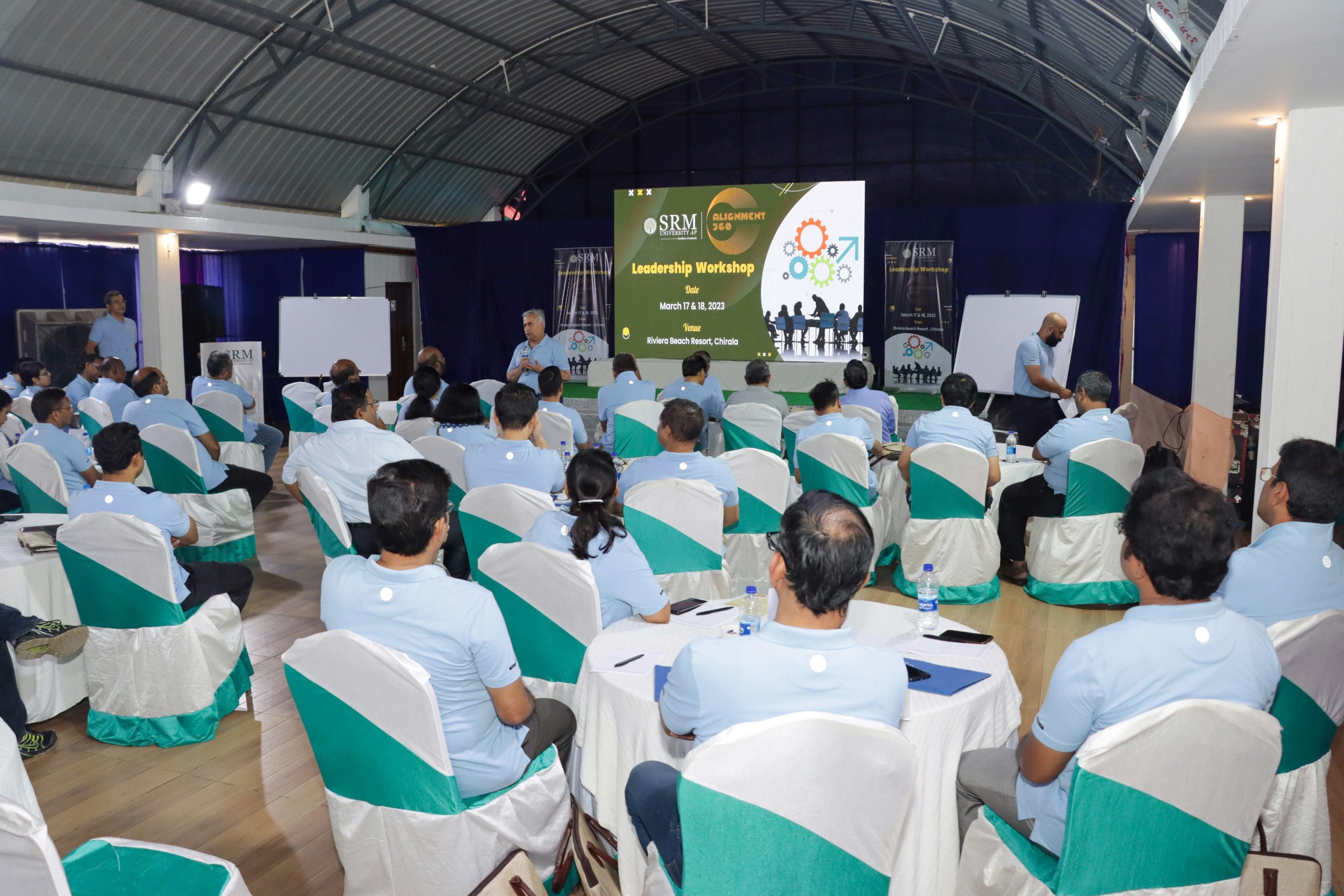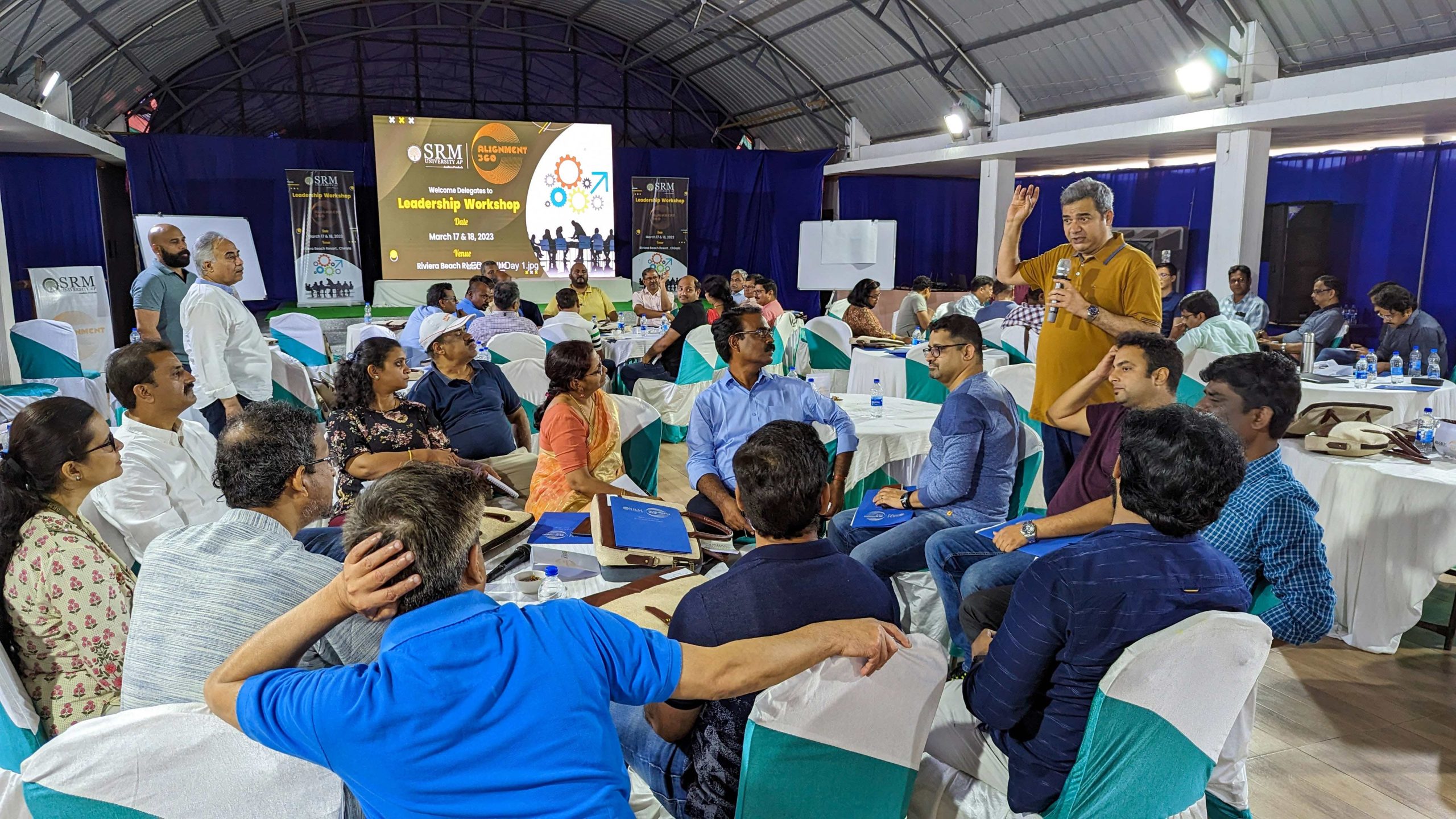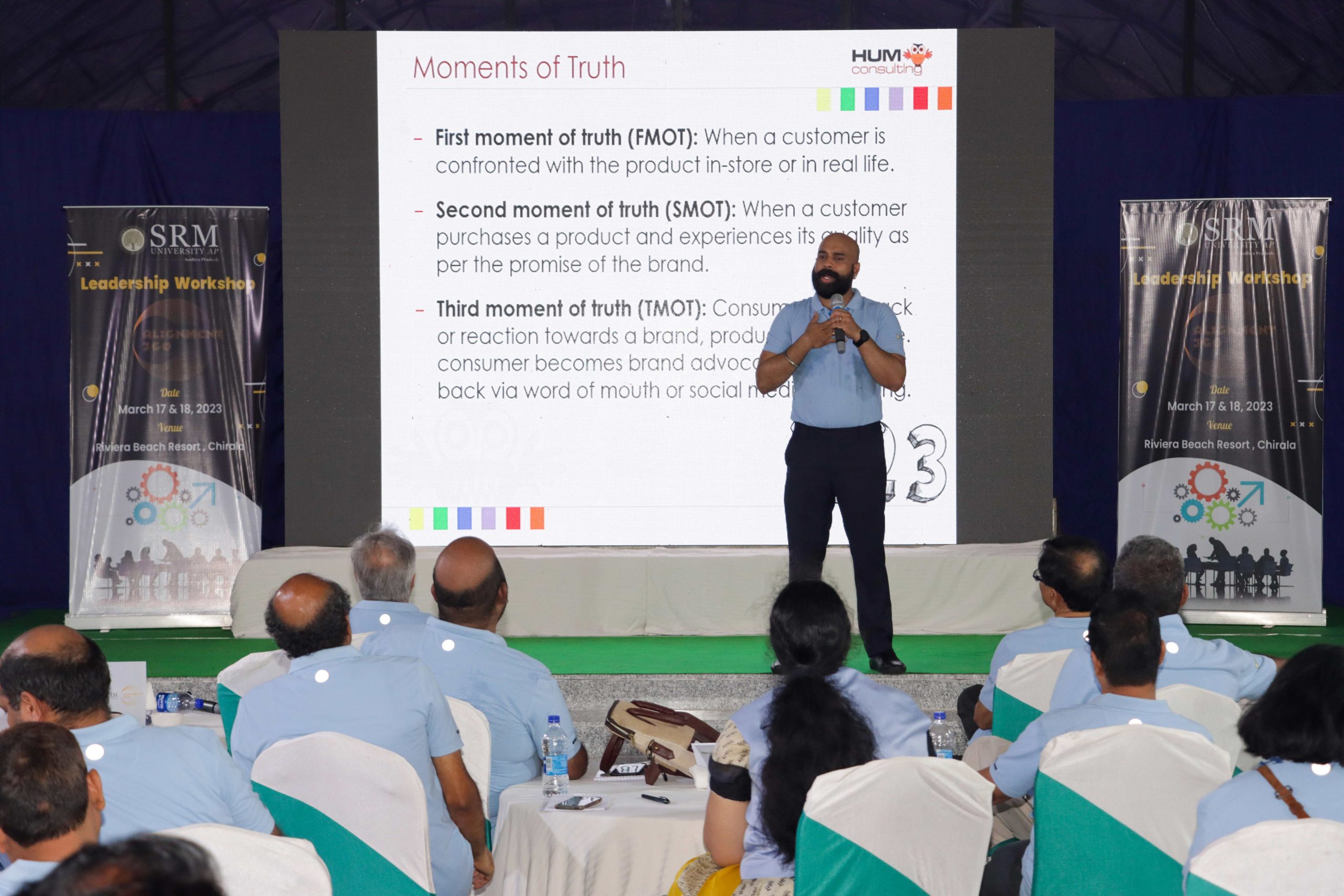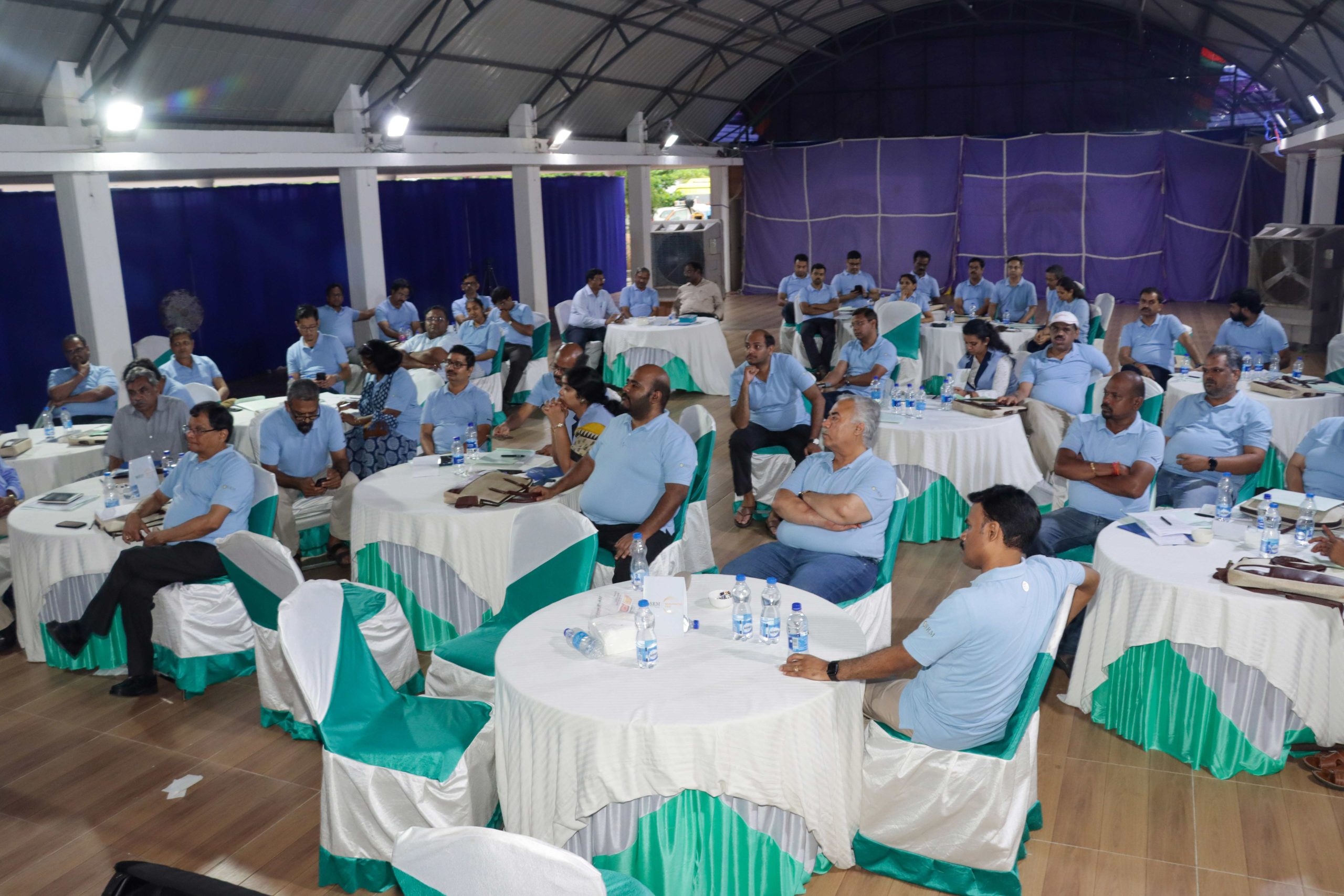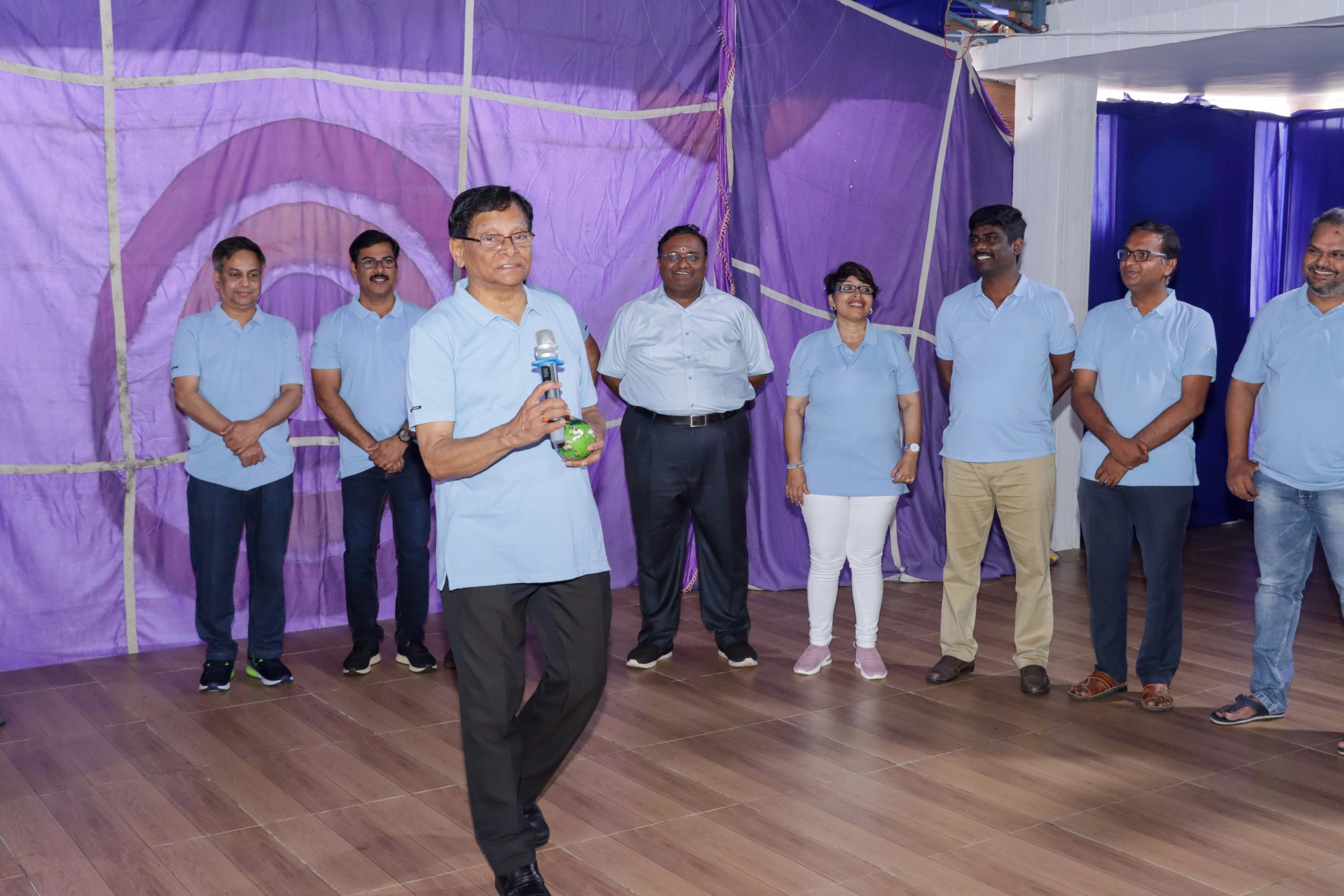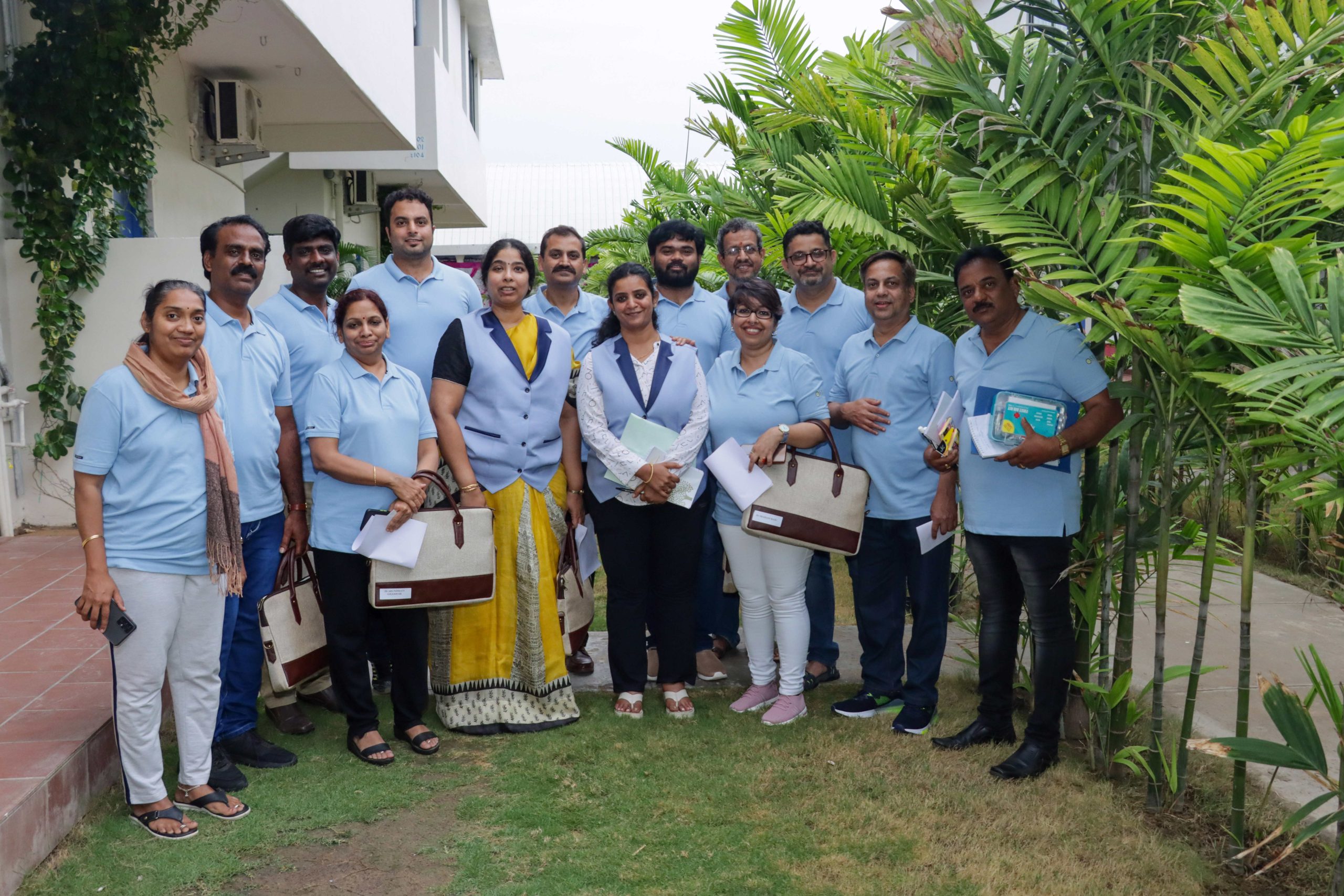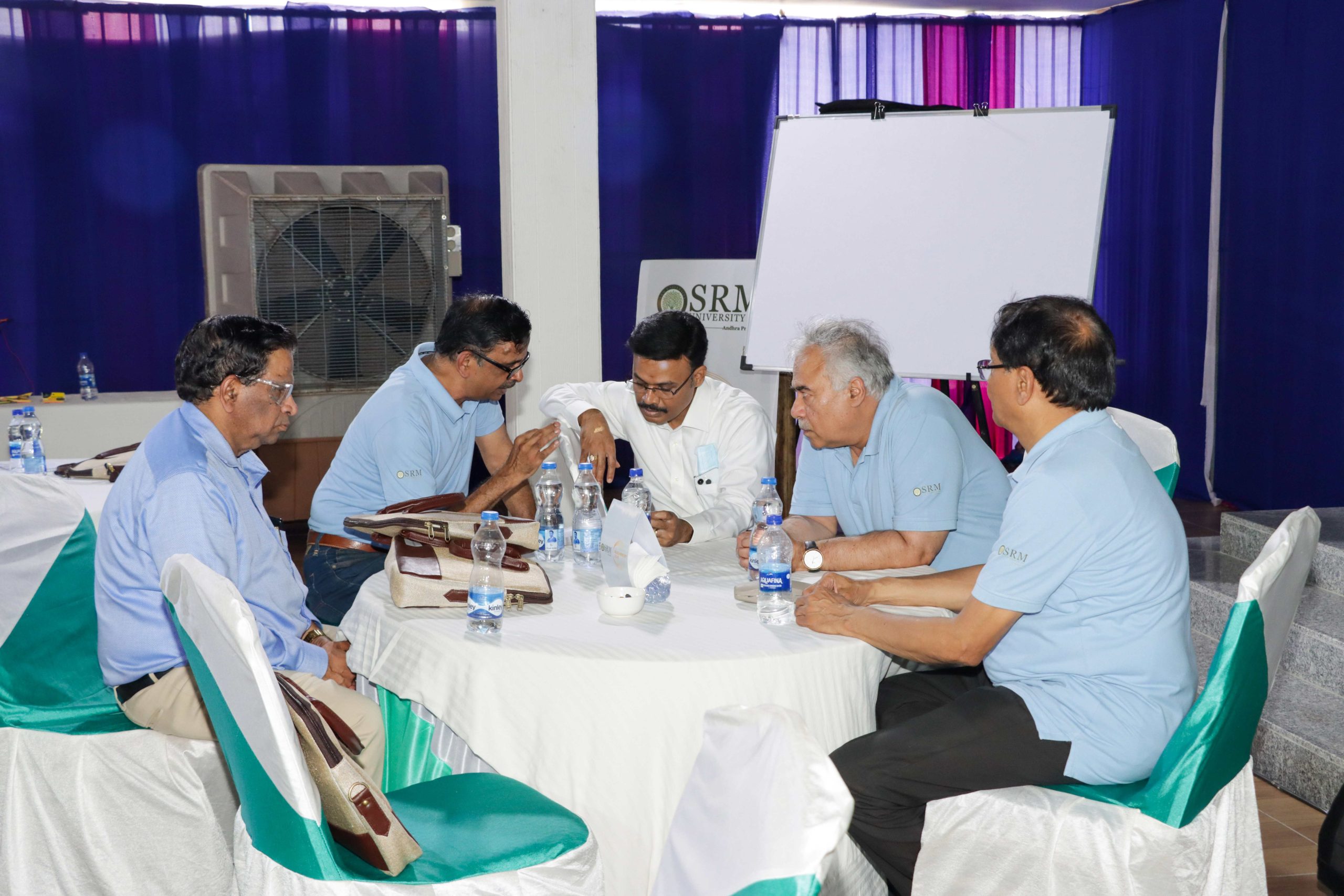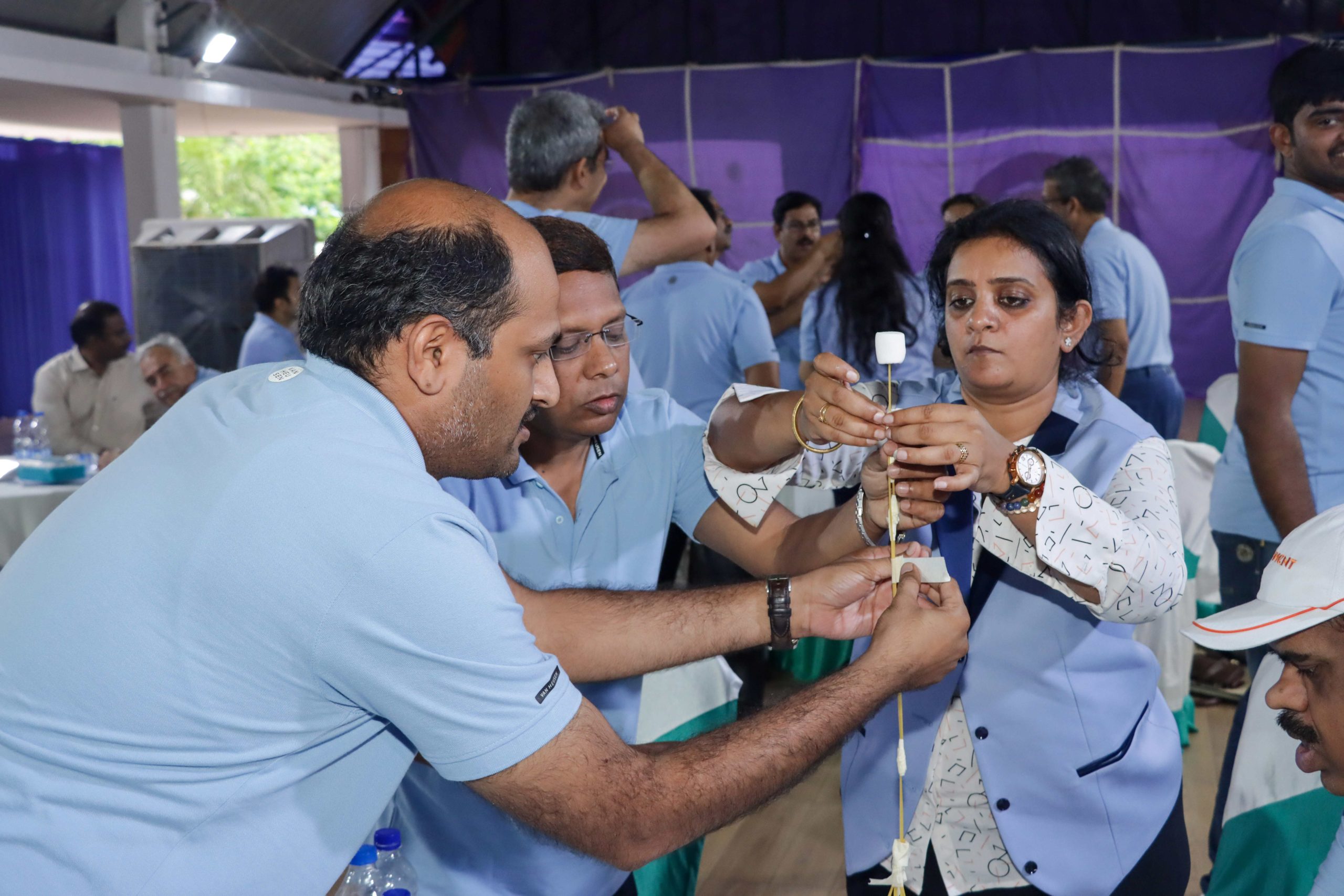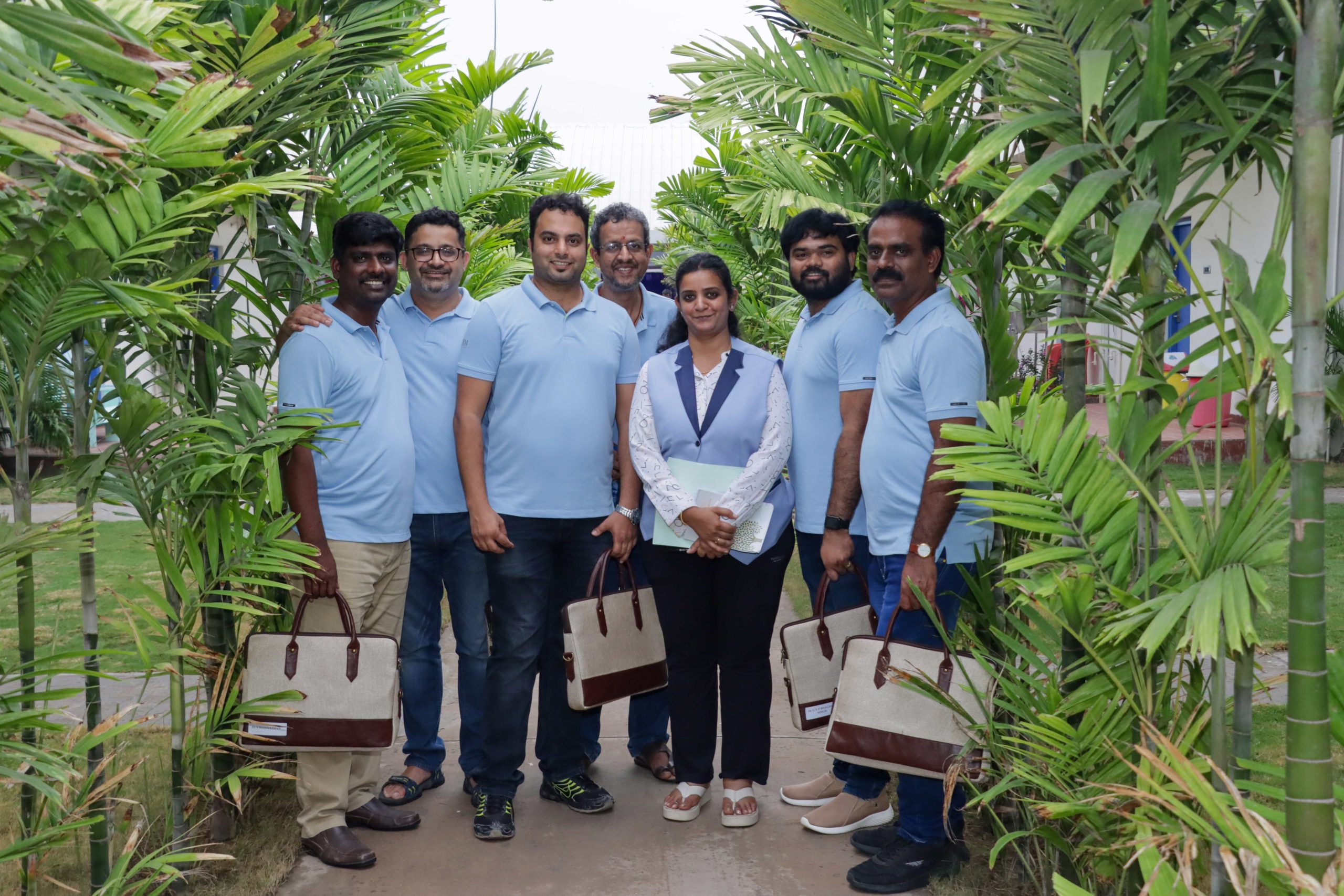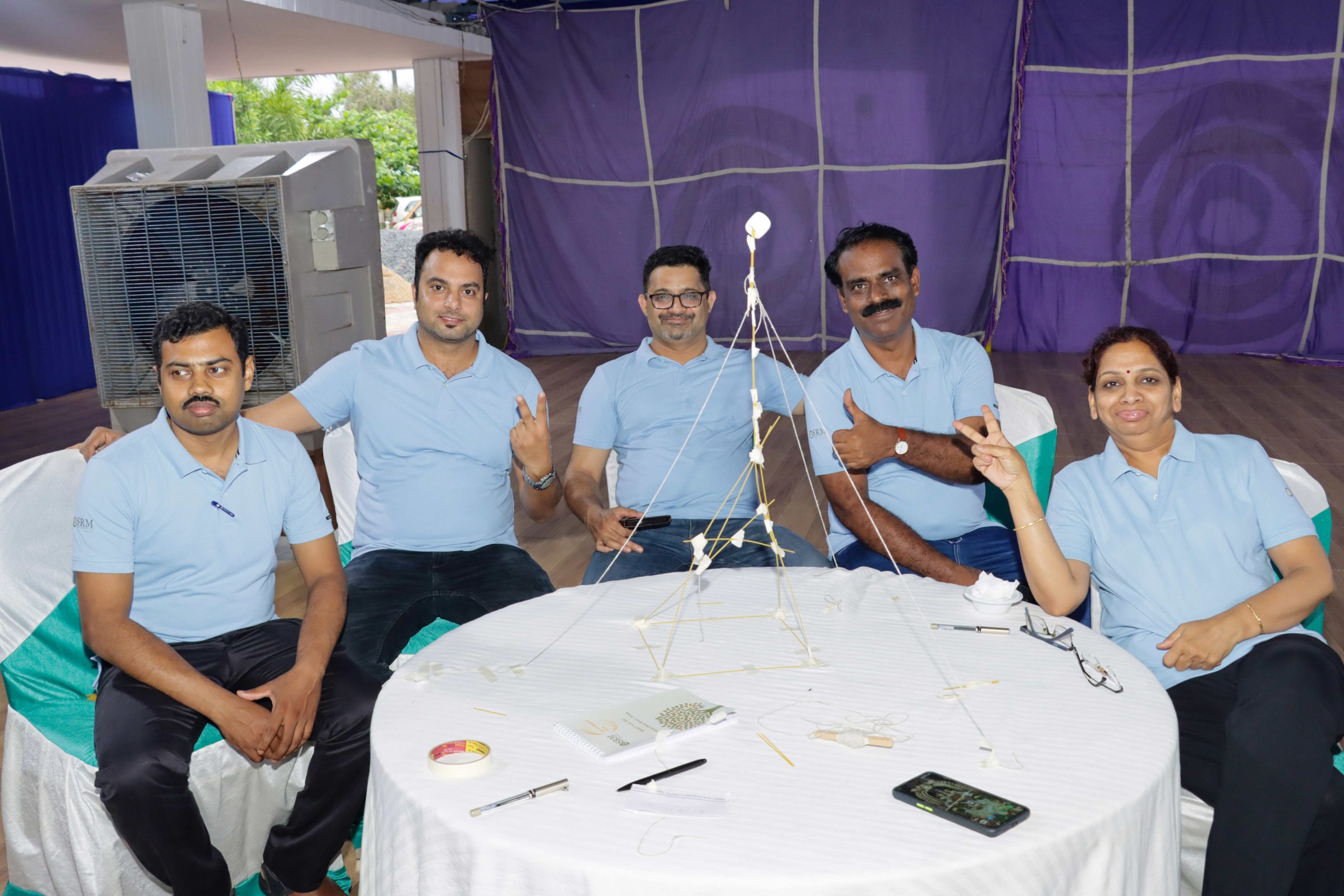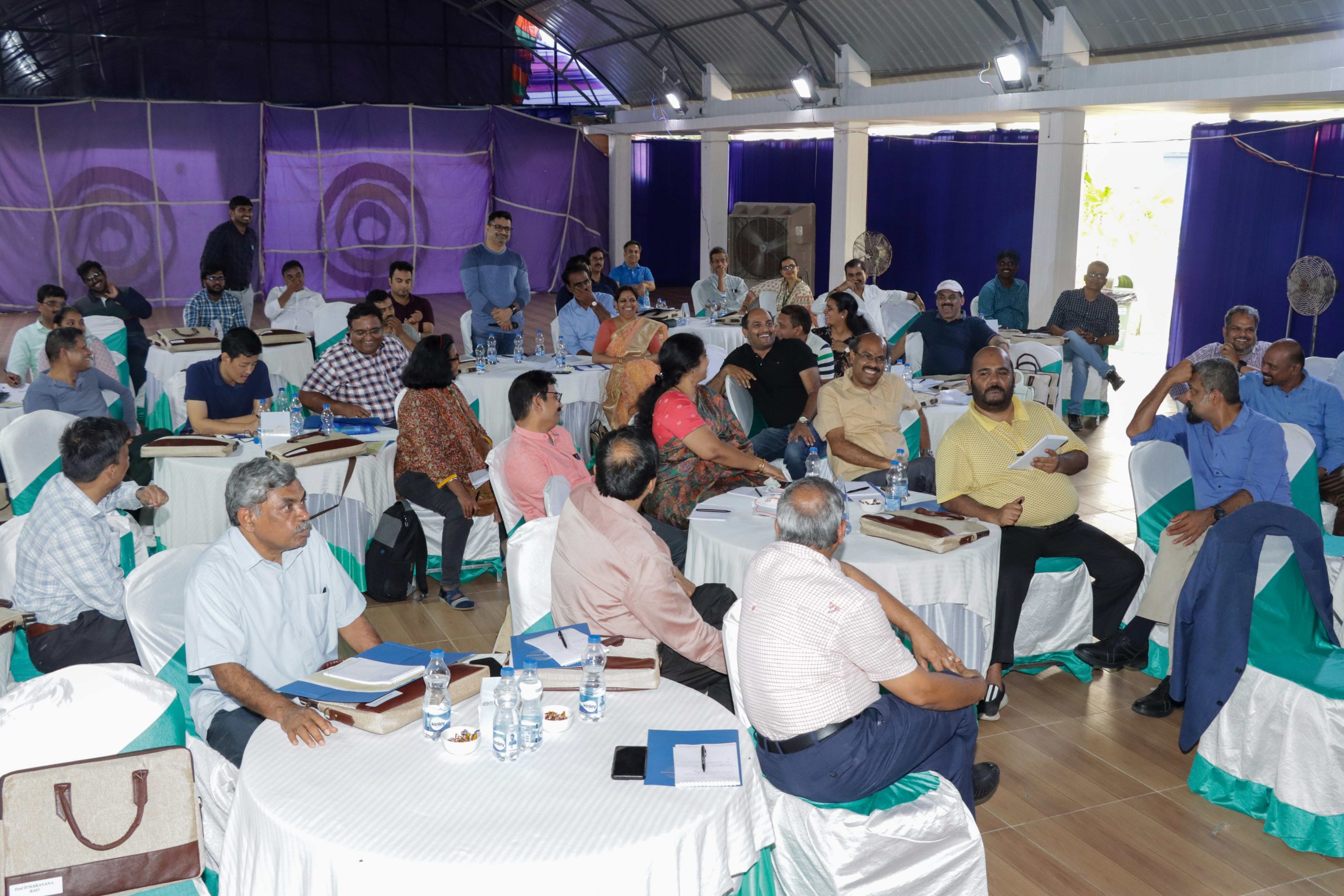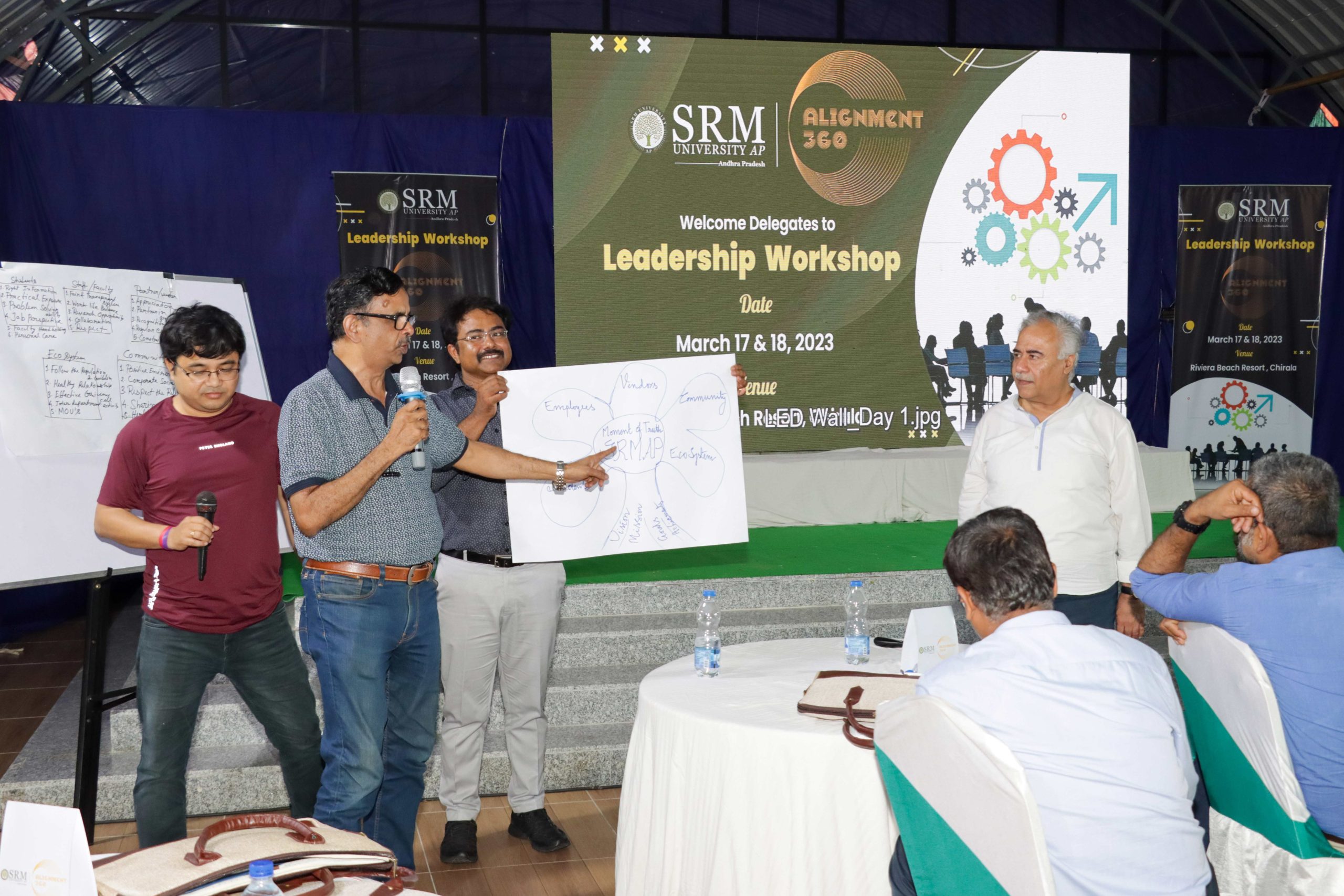- Alignment 360-The Leadership Workshop March 28, 2023
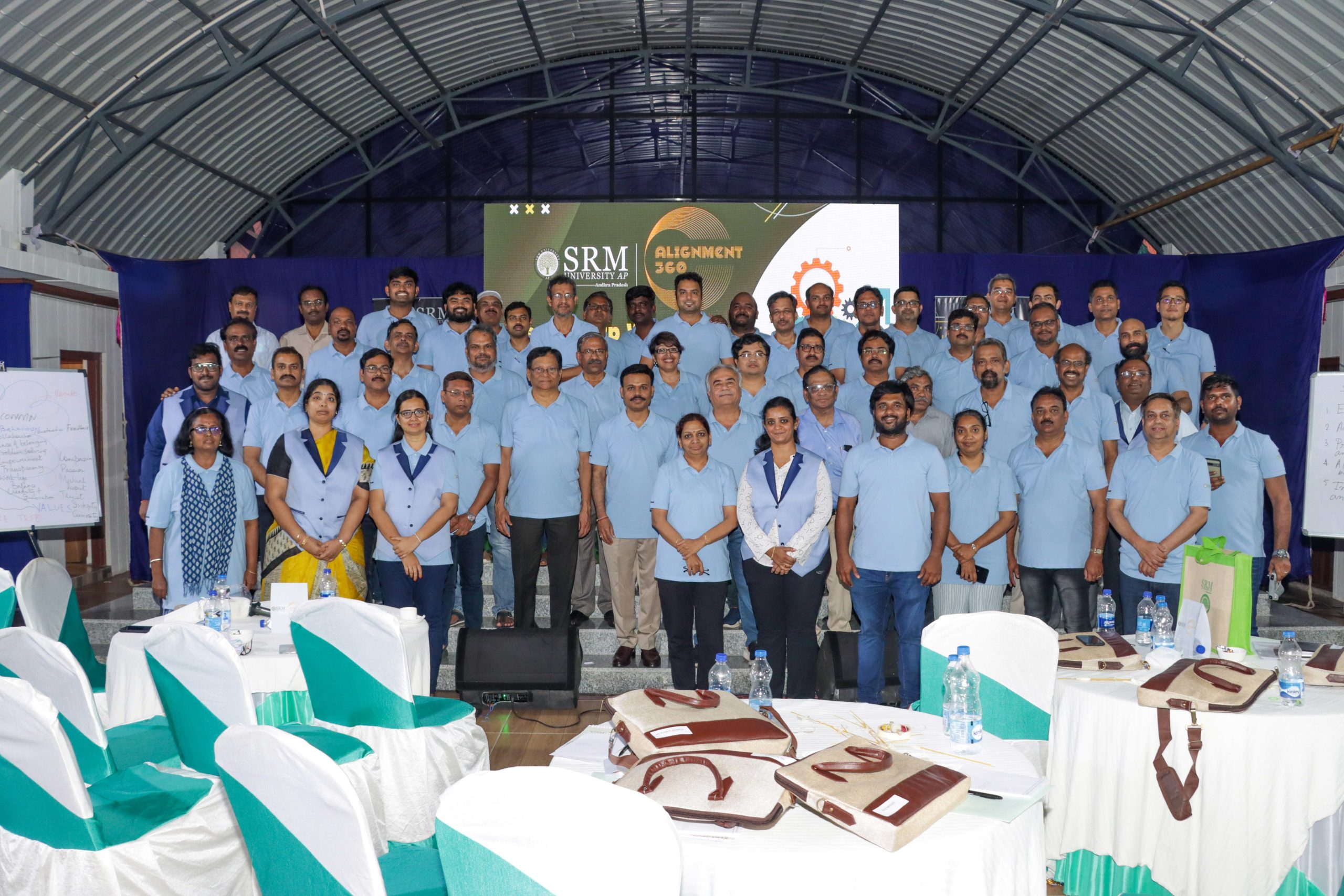
SRM University-AP conducted the first-ever three-day leadership workshop with the theme Alignment 360 to help individuals at the university align their values, goals, and behaviours holistically. 57 leadership team members from academic, non-academic, top management and the President’s office participated in the event held from March 17 to 19, 2023, at Riviera Beach Resort, Chirala. The workshop aimed to enable individuals and teams to clarify their core values and goals and develop an action plan to align their behaviour and decision-making with these values and goals.
Honourable Pro-Chancellor of SRM University-AP, Dr P Sathyanarayanan, expressed how glad he is over the workshop’s theme and put forth his vision and mission to locate SRM University-AP as the number one higher education institution in the upcoming years. Prof. Manoj K Arora, Vice Chancellor of SRM University-AP, kick-started the workshop by welcoming all and introducing the purpose of the workshop. He gave the task to the leadership team to formulate the next five years’ Strategic Goals and Operational goals.
The programme covered various aspects of alignment, including personal values, organisational culture, communication, leadership, and strategy. Through interactive exercises, discussions, and self-reflection, participants learn how to identify their values and goals, assess their current alignment, and develop strategies to improve alignment. The ultimate goal was to help individuals and organisations become more effective and efficient by aligning their behaviour with their core values and goals. By creating a shared understanding of values and goals, teams can work together more cohesively and make decisions that are consistent with their overarching mission and purpose. This, in turn, can lead to increased productivity, better morale, and improved outcomes.
Mr Chand and Mr Harish from Hum Consulting conducted the workshop and kept the audience enthralled and involved through various activities. Team building, Leadership roles, Target achievements, Conflict management and other activities were completed. The workshop concluded with a gala dinner and entertainment evening at the beach with the theme, Unwinding by the sea.
Continue reading → - Prof. Vishnupad Takes Over as the Dean of the SLASS at SRM University-AP March 28, 2023
The Hans India
Continue reading →
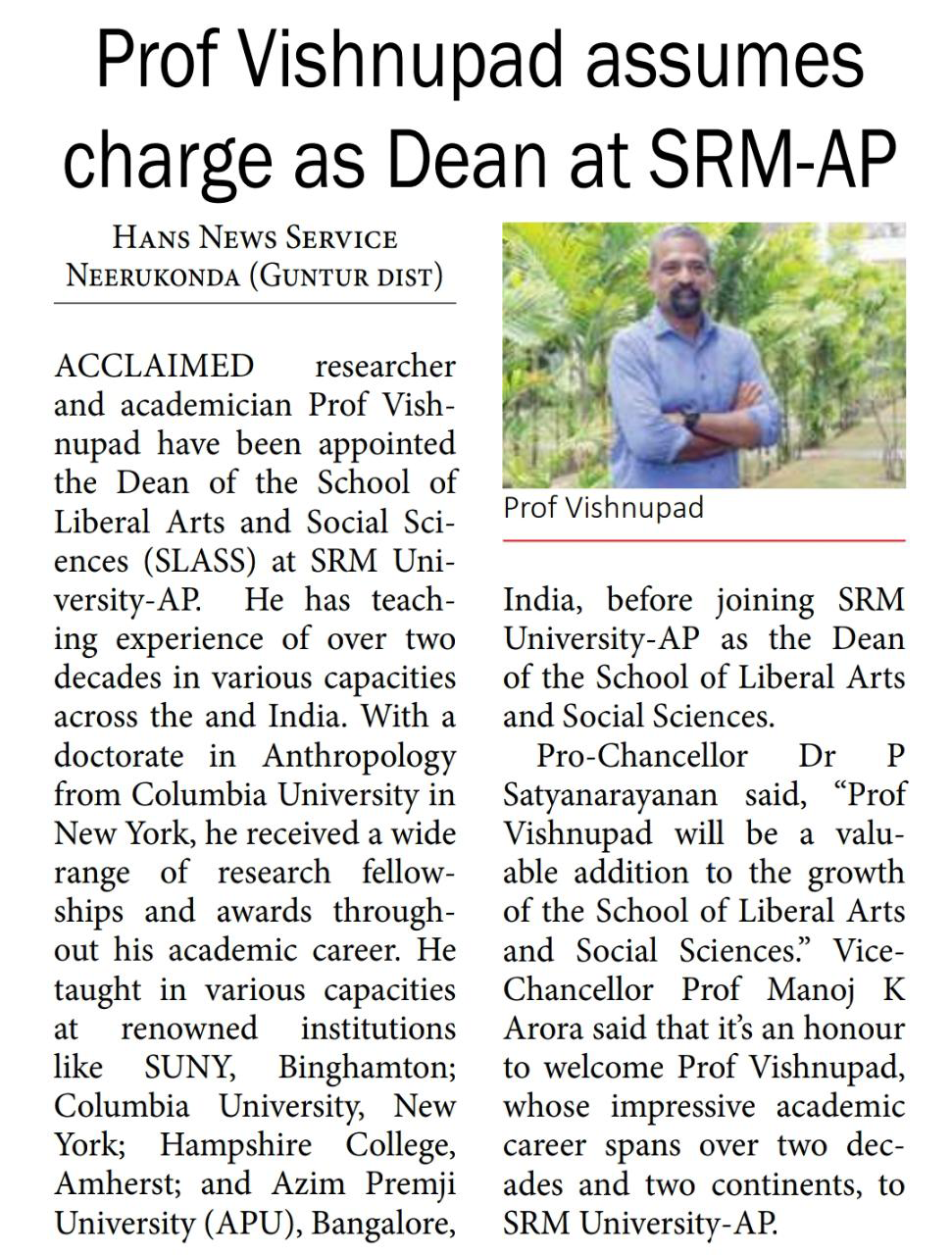
Pioneer
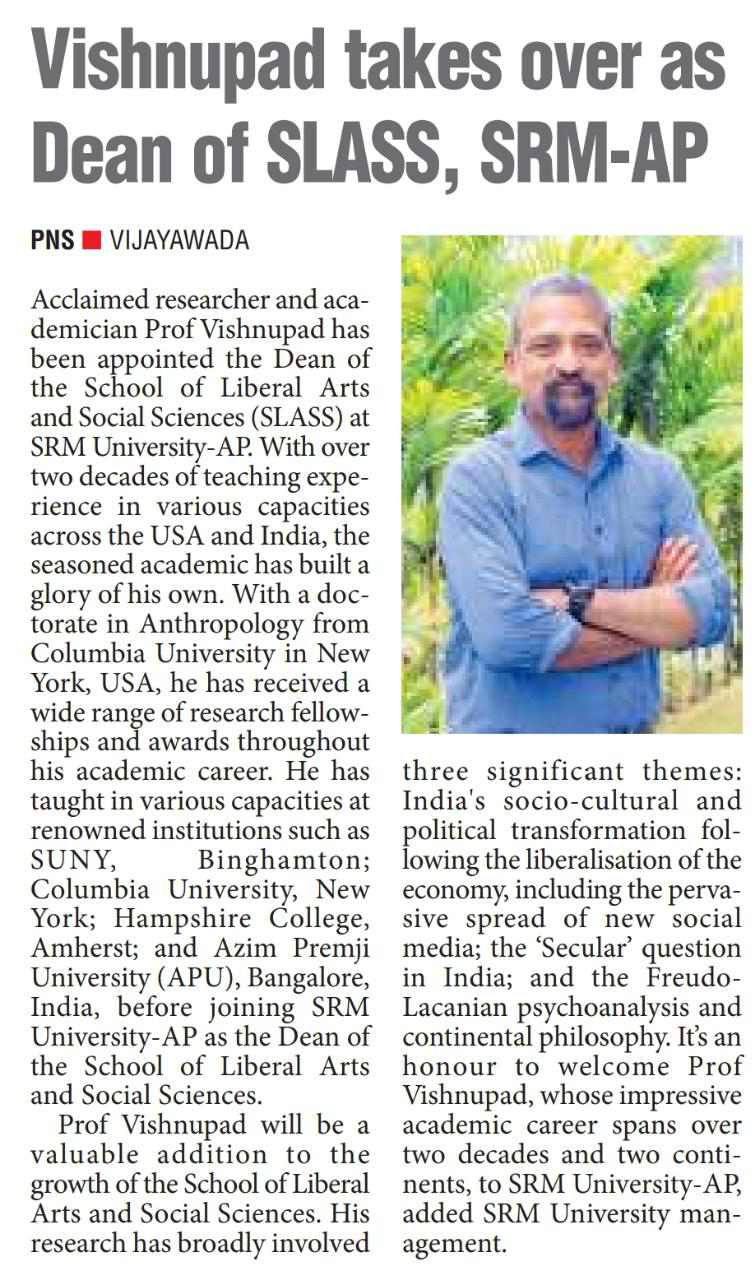
The New Indian Express
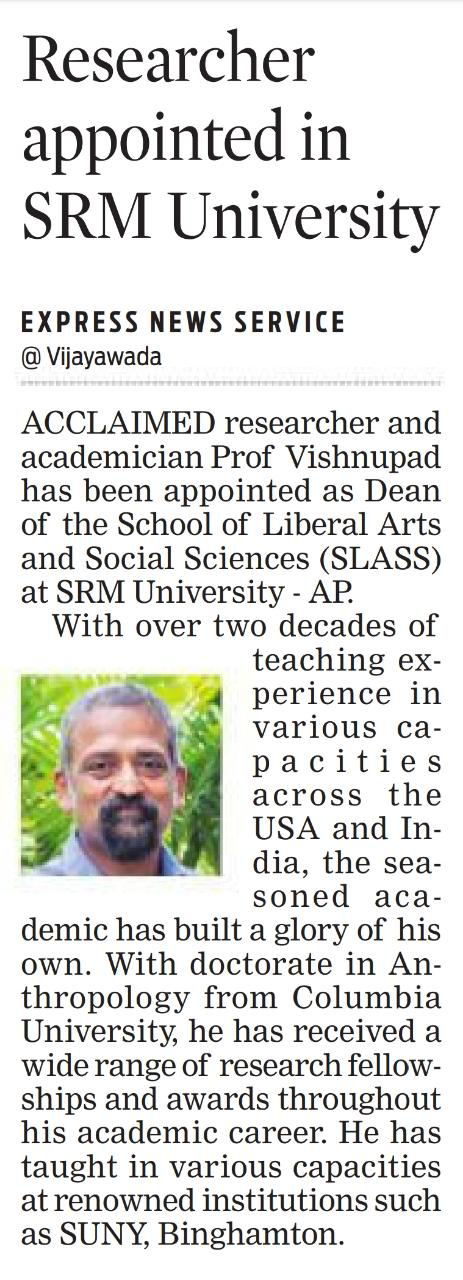
Andhra Jyothi
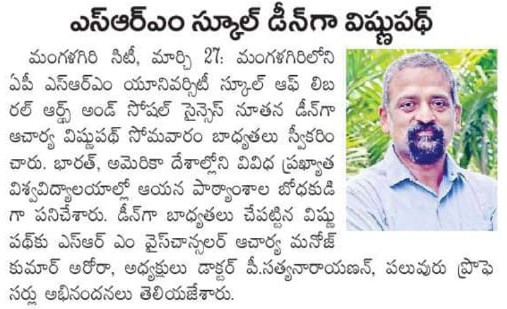
Andhra Patrika
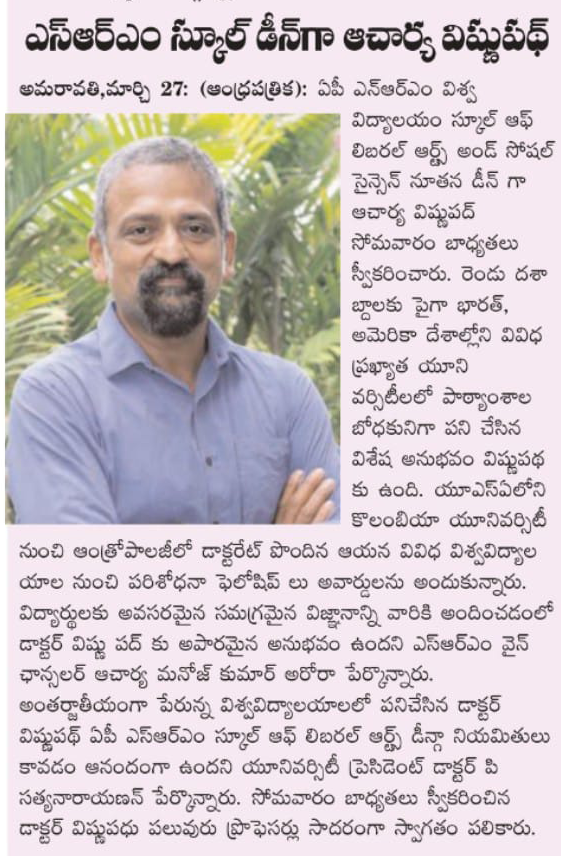
Andhra Prabha
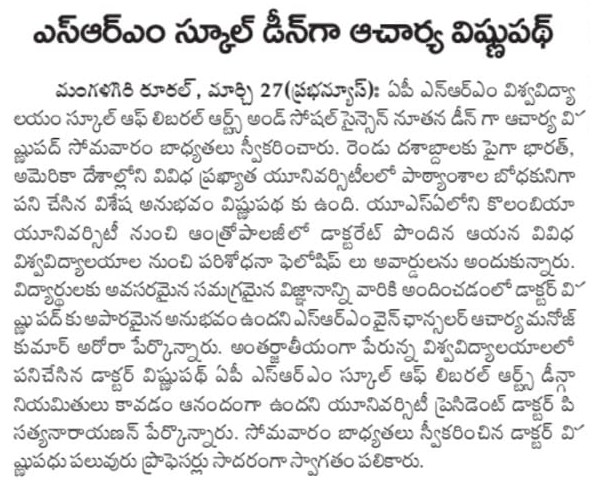
Eenadu
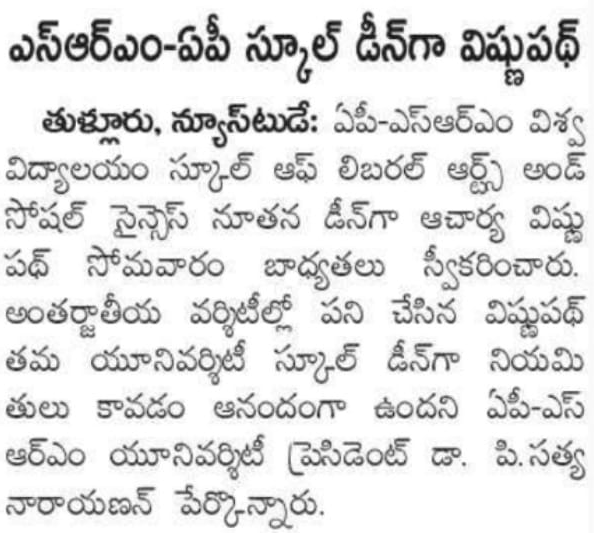
Power News Daily Today
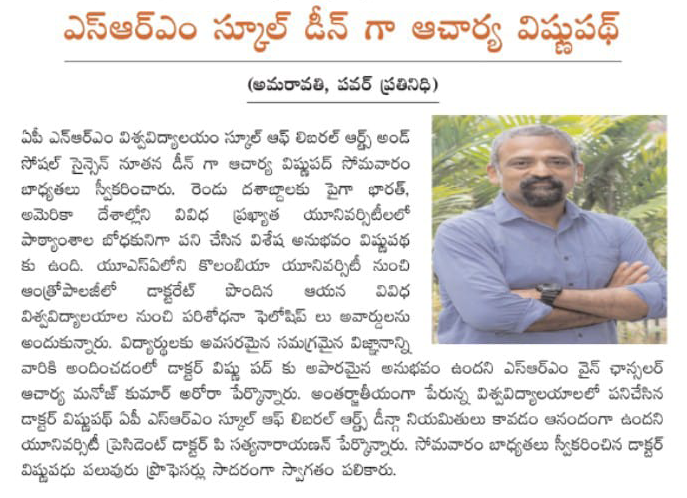
Surya
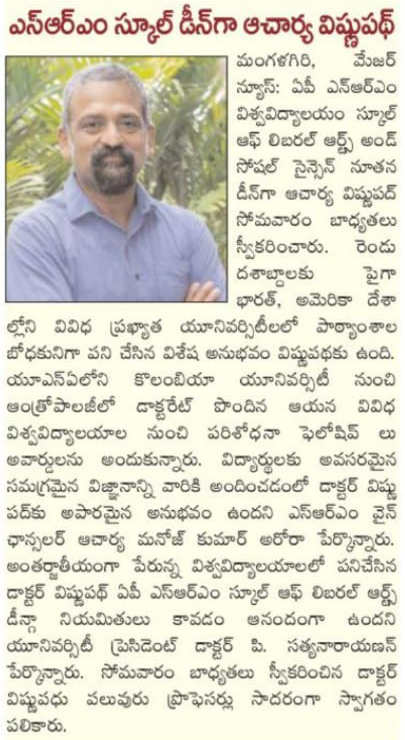
Vartha
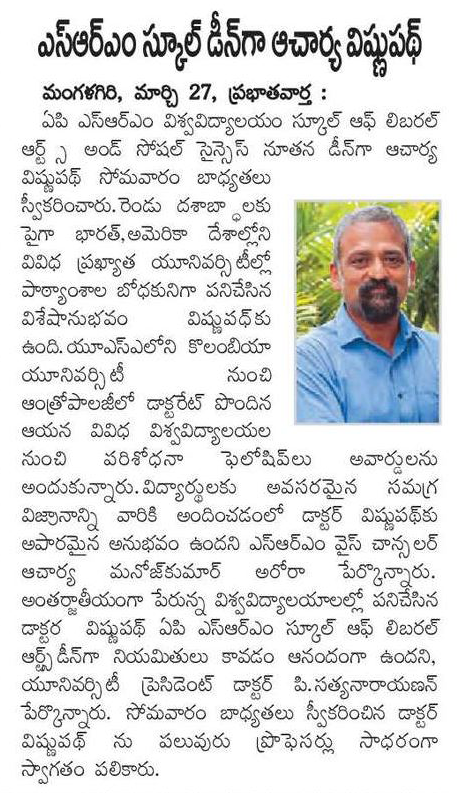
- Symposium on Cell and Molecular Biology (SCMB-2023) March 27, 2023
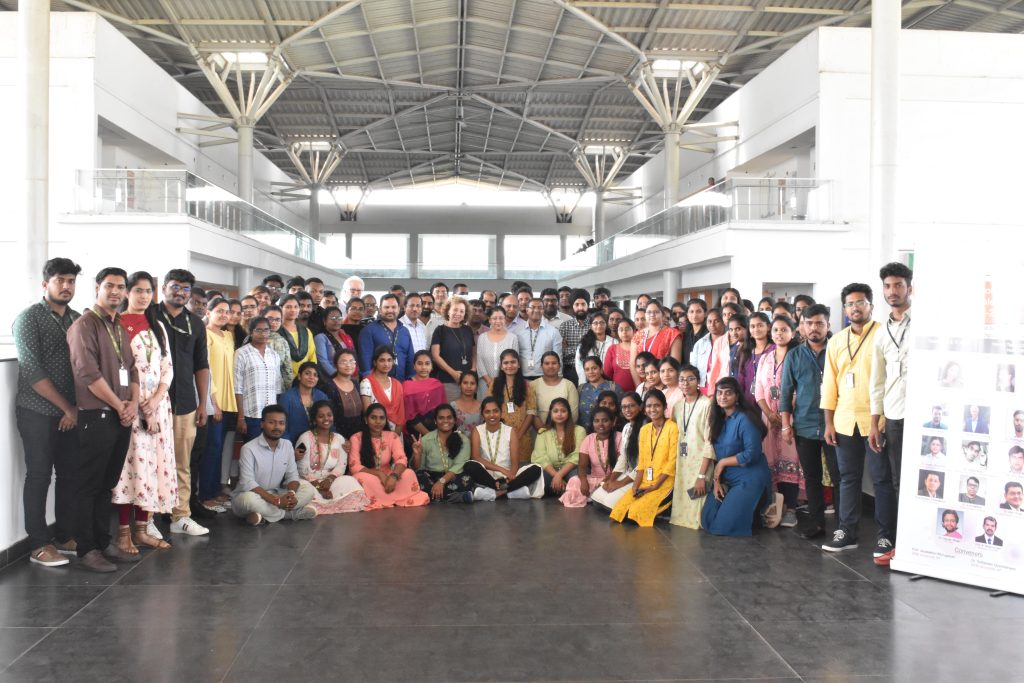
Cell and molecular biology is a vast field that encompasses many different areas of research, from genetics to immunology, from biochemistry to the study of single-cell sequencing. In order to emphasise the on-going research in cell and molecular biology, The Department of Biological Sciences organised a two-day Symposium on Cell and Molecular biology (SCMB-2023) from February 16 to 17, 2023, at SRM University-AP. The symposium consisted of insightful talks by eminent speakers from different parts of India and abroad, including the Hebrew University (Israel), Technion-Israel Institute of Technology (Israel), Biological Research Centre (Hungary), Weizmann Institute of Science (Israel), The AMR Insights (The Netherlands), Indian Institute of Science, IIT-Jodhpur, CSIR- Institute for Microbial Technology, IIIT-Delhi and more. A pre-symposium workshop on computational handling of biological data was another highlight of the convention.
Pre-symposium Workshop
In the past decade, the use of computational tools and algorithms to analyze data or use of artificial intelligence to model biological systems and predict how they will behave under different conditions have increased extensively. With an aim to give the basic knowledge of how this computational approach works, the Department of Biological Sciences invited Dr Gaurav Ahuja and Miss Aayushi Mittal to have a hands on session on:
- Building Machine Learning models leveraging biological datasets in R-programming.
- Using AutoML techniques for building classification and regression models (Biological datasets)
- Case study with Metabo Killer Python Package (Mittal et al. 2022, Nature Chemical Biology).
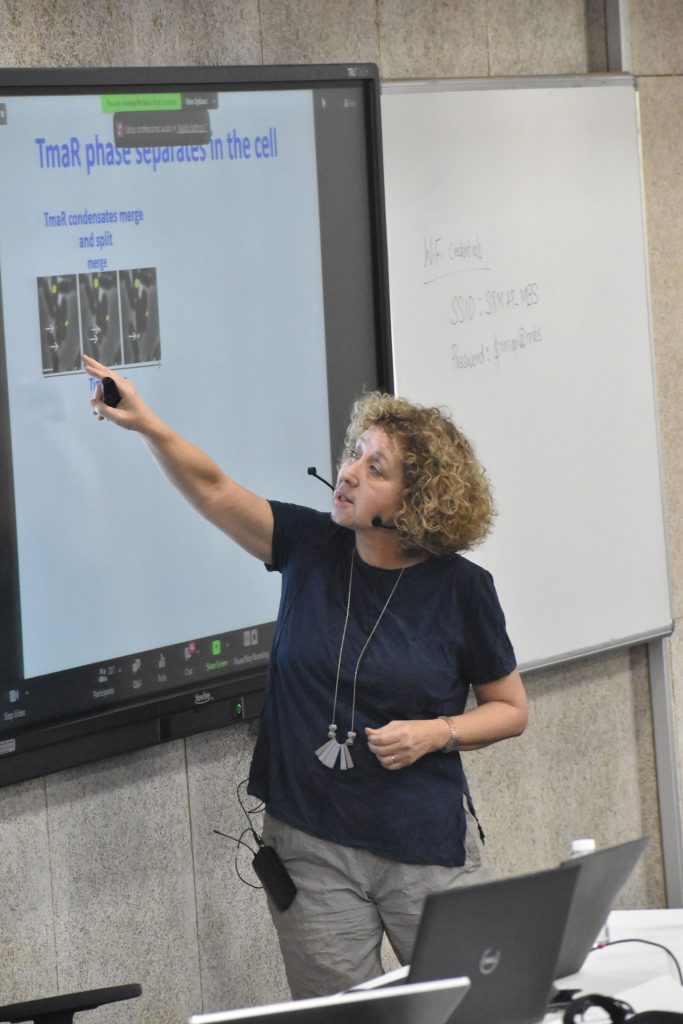
Symposium talks
Among all the eminent speakers the keynote speakers for the symposium were Prof. Orna Amster-Choder, Hebrew University of Jerusalem, Israel and Prof. Motti Choder, Technion- Israel Institute of Technology who gave an insight on gene expressions. With all the hot topics of cell and molecular biology starting right from ribosomal role in diseases, protein quality control in neurodegeneration and its therapy, the speakers also spoke about different model system and techniques, for instance bacterial nanotubes in intercellular interactions, use of Caenorhabditis elegans for host pathogen interaction, CRISPR-Cas3 systems for large-scale genome manipulation and gene discovery and Pseudouridine RNA modification. These insightful talks on data analytics and cell and its regulation not only provided the participants with brainstorming sessions, it also provided a platform to discuss and channelise new thoughts.
The conference was jointly convened by Prof. Jayaseelan Murugaiyan, Head of the Department of Biological Sciences, SRM University-AP, India and Dr Sutharsan Govindarajan, India Alliance Early Career Fellow and Assistant Professor at SRM University-AP. The symposium was held in a hybrid mode aimed to reach more budding scientists and established researchers. The target audience of the symposium included undergraduate students, postgraduate students, doctoral and post-doctoral scholars and researchers across the world. Participants from over nine institutes took part in the offline mode with a majority being undergrad students, whereas online participation witnessed registration from 327 institutes. The symposium had 120 offline participants and 572 online participants from 19 countries; 26 states and 3 union territories within India.
Continue reading → - Semiconductor Packaging Engineer March 24, 2023

14. Semiconductor Packaging Engineer
A Semiconductor Packaging Engineer is responsible for designing and developing the packaging of semiconductor chips, which includes selecting the materials, creating the layout, and testing the final product.
Their job roles and skills required may vary depending on the specific industry and company they work for, but generally include:
- Developing packaging solutions for semiconductor chips, including designing the layout and selecting the materials to ensure optimal performance and reliability
- Collaborating with cross-functional teams, including design, process, and test engineering, to ensure the packaging meets the requirements of the chip design and manufacturing processes
- Conducting feasibility studies and simulations to determine the best packaging solution for each product and application
- Creating and managing packaging specifications, including environmental and reliability testing requirements, to ensure the packaging meets industry standards
- Overseeing the prototype and sample build process and conducting functional and reliability testing to validate the packaging design
- Identifying and resolving packaging-related issues and working with cross-functional teams to implement corrective actions
- Working with vendors to ensure that the packaging materials and processes meet quality standards and are cost-effective
- Developing and implementing process improvements to increase packaging efficiency and reduce costs
- Staying up to date with new packaging technologies and materials to continually improve packaging design and development processes.
Skills required for a Semiconductor Packaging Engineer include:
- Strong understanding of semiconductor chip design and manufacturing processes
- Experience in semiconductor packaging design and development
- Knowledge of packaging materials and processes, including their impact on chip performance and reliability
- Proficiency in simulation and design tools for semiconductor packaging design and development.
Overall, a Semiconductor Packaging Engineer is critical in ensuring that semiconductor chips are packaged optimally to meet performance and reliability requirements while minimising cost and environmental impact.
These are just a few examples of the many job roles in the semiconductor industry. Other functions include marketing, finance, supply chain management, and more. The initiative offers various opportunities for individuals with various skills and backgrounds, and it continues to be a dynamic and exciting field to work in.
Advantages of pursuing BTech in Electronics and Communication Engineering with Specialisation in VLSI & Embedded Systems at SRM University-AP
The curriculum is designed to equip students with the technical knowledge, analytical skills, and practical experience needed to develop an in-depth understanding of VLSI design and applications, which will help them to design and develop advanced electronic systems and devices. The curriculum covers various topics, including digital and analog electronic circuits, microprocessors, computer organization and architecture, digital signal processing, communication systems, and programming languages.
The curriculum also includes practical training in VLSI design using industry-standard tools and techniques. Students are trained to design and simulate VLSI circuits, layout and verification of the circuit, and test and debug procedures.
The curriculum is regularly updated to keep up with the latest technological advancements. This ensures that students are equipped with the latest knowledge and skills to succeed in their careers in the electronics and VLSI industry.
Continue reading → - Koecher-Maass Series have Infinitely Many Critical Zeros March 24, 2023
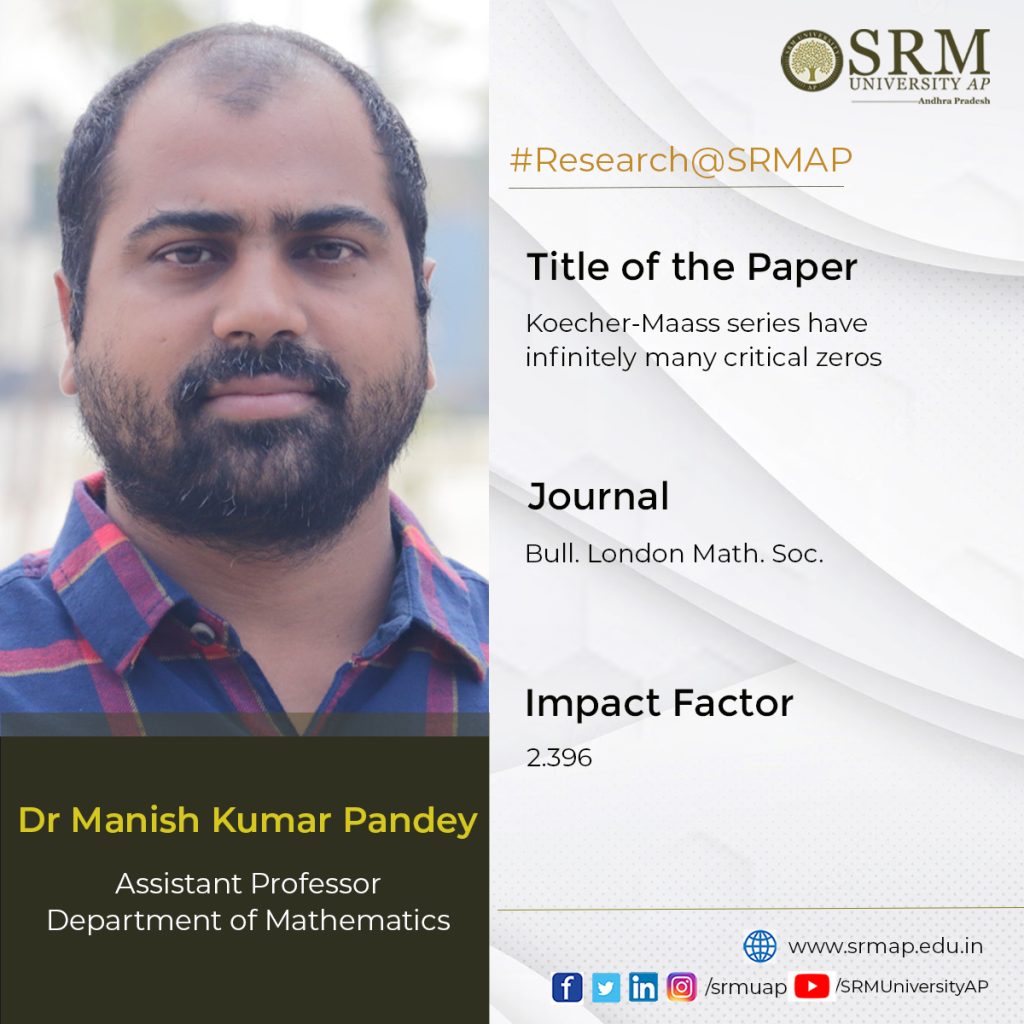
Dr Manish Kumar Pandey, Assistant Professor, Department of Mathematics, has published a paper titled, “Koecher–Maass series have infinitely many critical zeros” in the journal Bull. London Math. Soc. having an Impact Factor of 2.396.
Abstract
The article studies the zeros of the Koecher-Maass series associated with a Siegel cusp form of degree 2. It is proved that the Koecher-Maass series associated with a Siegel cusp form has infinitely many zeros on the critical line.
Practical implementation
It is well known that zeros of the Riemann zeta function have connections with prime numbers. In a similar fashion, one can state the behaviour of the coefficients of such series at primes. These are results of pure mathematical flavour and their immediate application will take time.
Collaborations
-
- Dr Jaban Meher, National Institute of Science Education and Research (NISER), Bhubaneshwar
- Dr Karamdeo Shankhadhar, Indian Institutes of Science Education and Research (IISER), Bhopal
-


